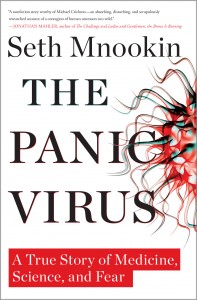
On February 28, 1998, the revered British medical journal The Lancet published a brief paper by then-high profile but controversial gastroenterologist Andrew Wakefield that claimed to have linked the MMR (measles, mumps and rubella) vaccine with regressive autism and inflammation of the colon in a small case number of children. A subsequent paper published four years later claimed to have isolated the strain of attenuated measles virus used in the MMR vaccine in the colons of autistic children through a polymerase chain reaction (PCR amplification). The effect on vaccination rates in the UK was immediate, with MMR vaccinations reaching a record low in 2003/2004, and parts of London losing herd immunity with vaccination rates of 62%. 15 American states currently have immunization rates below the recommended 90% threshold. Wakefield was eventually exposed as a scientific fraud and an opportunist trying to cash in on people’s fears with ‘alternative clinics’ and pre-planned a ‘safe’ vaccine of his own before the Lancet paper was ever published. Even the 12 children in his study turned out to have been selectively referred by parents convinced of a link between the MMR vaccine and their children’s autism. The original Lancet paper was retracted and Wakefield was stripped of his medical license. By that point, irreparable damage had been done that may take decades to reverse.
How could a single fraudulent scientific paper, unable to be replicated or validated by the medical community, cause such widespread panic? How could it influence legions of otherwise rational parents to not vaccinate their children against devastating, preventable diseases, at a cost of millions of dollars in treatment and worse yet, unnecessary child fatalities? And why, despite all evidence to the contrary, have people remained adamant in their beliefs that vaccines are responsible for harming otherwise healthy children, whether through autism or other insidious side effects? In his brilliant, timely, meticulously-researched book The Panic Virus, author Seth Mnookin disseminates the aggregate effect of media coverage, echo chamber information exchange, cognitive biases and the desperate anguish of autism parents as fuel for the recent anti-vaccine movement. In doing so, he retraces the triumphs and missteps in the history of vaccines, examines the social impact of rejecting the scientific method in a more broad perspective, and ways that this current utterly preventable public health crisis can be avoided in future scenarios. A review of The Panic Virus, an enthusiastic ScriptPhD.com Editor’s Selection, follows below.
Continue reading “The Panic Virus” and the Origins of the Anti-Vaccine Movement